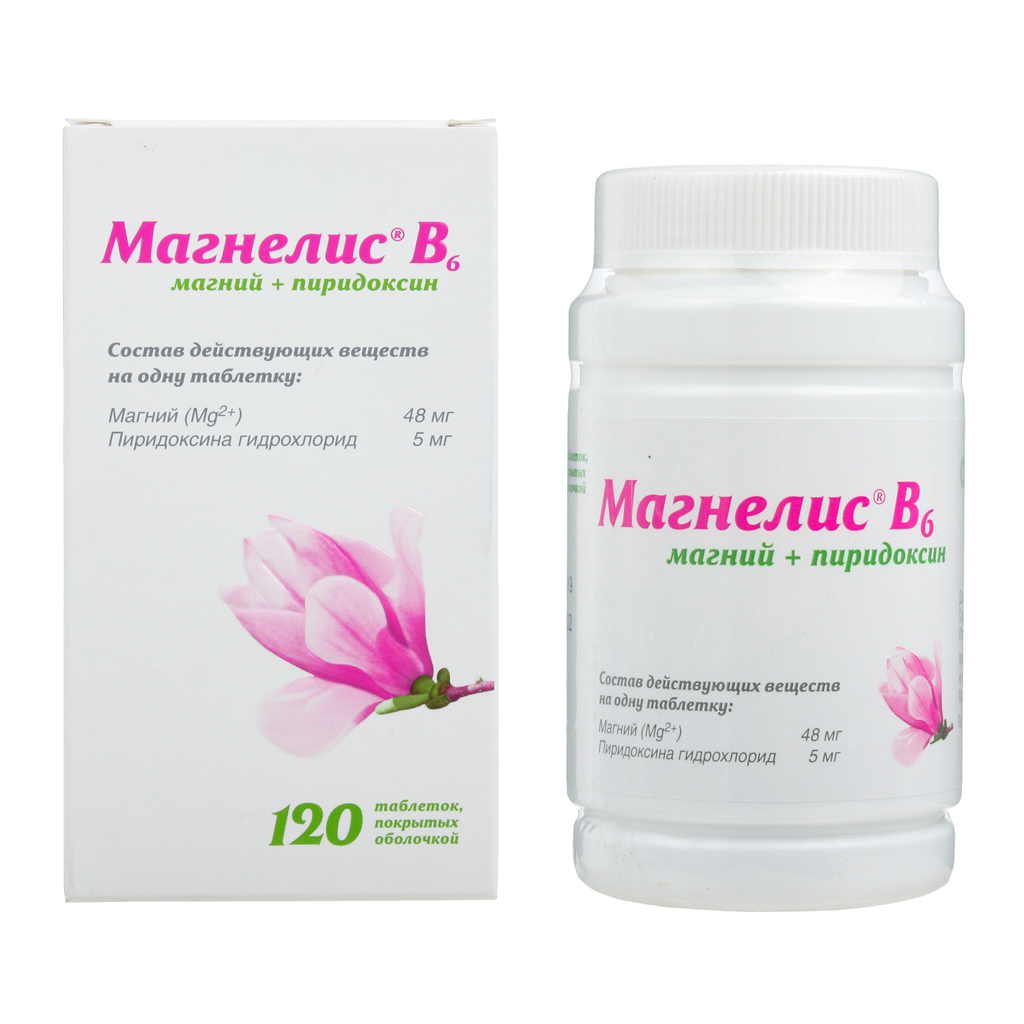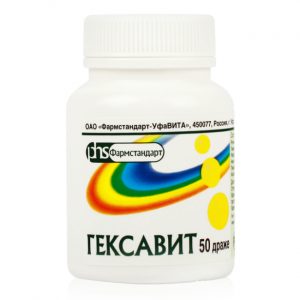Description
Pharmacological action
Replenishes magnesium deficiency.
Magnesium is a vital element that is found in all body tissues and is necessary for the normal functioning of cells. Participates in most metabolic reactions, in the regulation of transmission of nerve impulses and in muscle contraction, has an antispasmodic, antiarrhythmic and antiaggregant effect.
The body receives magnesium along with food. A lack of magnesium in the body can be observed with a violation of the diet (diet) or with an increase in the need for magnesium (with increased physical and mental stress, stress, pregnancy, the use of diuretics).
Pyridoxine (vitamin B6) is involved in many metabolic processes, in the regulation of the metabolism of the nervous system. Vitamin B6 improves the absorption of magnesium from the gastrointestinal tract and its penetration into cells.
Serum magnesium:
12 to 17 mg / L (0.5-0.7 mmol / L) indicates moderate magnesium deficiency.
below 12 mg / L (0.5 mmol / L) indicates severe magnesium deficiency.
Pharmacokinetics
Absorption of magnesium in the gastrointestinal tract is 50% of the oral dose. It is excreted mainly through the kidneys. In the kidneys, after glomerular filtration of 70% of the magnesium present in the plasma, it is reabsorbed by the renal tubules in a proportion of 95% – 97%.
Indications
Established magnesium deficiency, isolated or associated with other deficient conditions.
Contraindications
Hypersensitivity to drug components, severe renal failure (creatinine clearance less than 30 ml / min), phenylketonuria.
Children’s age – up to 6 years.
Caution: with moderate renal failure, as there is a risk of developing hypermagnesemia.
Special instructions
Information for patients with diabetes: tablets contain sucrose as an excipient.
In case of concomitant calcium deficiency, magnesium deficiency should be eliminated before taking calcium supplements.
With frequent use of laxatives, alcohol, intense physical and mental stress, the need for magnesium increases, which can lead to a deficiency of magnesium in the body.
Composition
Each tablet contains magnesium lactate – 470 mg and pyridoxine hydrochloride – 5 mg
Excipients:
Core: sucrose – 27.4 mg,
kaolin – 41.0 mg,
acacia gum – 25.0 mg, collidone SR [polyvinyl nyl acetate 80%, povidone 19%, sodium lauryl sulfate 0.8%, silicon dioxide 0.2%] -34.0 mg,
magnesium stearate – 6.8 mg,
sodium carmellose – 34.0 mg ,
talcum powder – 6.8 mg.
Shell:
sucrose – 166.7 mg,
kaolin – 54.0 mg,
gelatin – 0.9 mg,
acacia gum – 4.0 mg,
beeswax – 0.4 mg,
titanium dioxide – 9 , 0 mg,
talcum powder – 15.0 mg.
Dosage and administration of
Before taking the drug, consult your doctor.
Adults are advised to take 6-8 tablets per day.
Children over 6 years of age (weighing more than 20 kg) 4-6 tablets per day.
The daily dose should be divided into 2-3 doses, taken with food, washed down with a glass of water.
Treatment should be discontinued after normalizing the concentration of magnesium in the blood.
Side effects
From the digestive tract: abdominal pain, constipation, nausea, vomiting, flatulence.
Allergic reactions: allergic reactions to the components of the drug are possible.
Overdose of
With normal renal function, oral administration of magnesium does not cause toxic reactions. Magnesium poisoning can develop in renal failure. Toxic effects mainly depend on the serum magnesium content.
Overdose symptoms: drop in blood pressure, nausea, vomiting, slowing of reflexes, anuria, respiratory depression, coma, cardiac arrest.
Treatment: rehydration, forced diuresis. In renal failure, hemodialysis or peritoneal dialysis is necessary.
Storage conditions
At a temperature not exceeding 25 ° C.
Keep out of the reach of children.
Expiration
2 years.
Do not use after expiration date.
Deystvuyuschee substances
magnesium, pyridoxine
Pharmacy conditions
without prescription
dosage form
tablets


